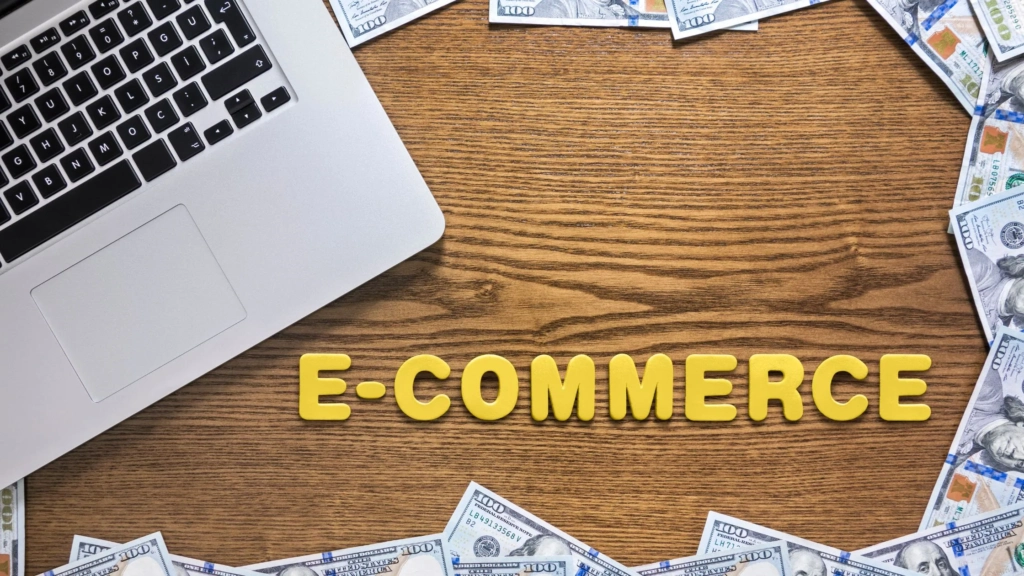In today’s digital age, e-commerce has become an integral part of the business world. Whether you’re a small, local shop or a global retailer, an effective e-commerce marketing strategy is crucial for growth and success. The internet has leveled the playing field, allowing businesses of all sizes to compete and thrive. To make the most of your e-commerce venture, you need to employ a well-rounded and effective marketing strategy.
Here, we’ll explore 15 e-commerce marketing strategies that can help you grow your business and achieve your goals. From social media marketing to email campaigns, SEO optimization, and beyond, these strategies are designed to give you the edge in the competitive world of online retail.
Leverage Social Media Marketing
In today’s world, social media is a powerhouse of marketing potential. Platforms like Facebook, Instagram, and Twitter offer the perfect stage to engage with your target audience. Create a strong presence on these platforms by sharing high-quality content, running ads, and interacting with your followers. The more you engage, the more visibility you’ll gain.
Harness the Power of Influencer Marketing
nfluencer marketing has skyrocketed in recent years. Collaborating with influencers can give your products a stamp of approval from trusted figures in your industry, boosting your brand’s credibility and reach. Choose influencers whose audience aligns with your target market to maximize the impact.
Optimize Your Website for Search Engines (SEO)
If you want your e-commerce site to succeed, it must be easily discoverable on search engines like Google. Optimize your website for search by using relevant keywords, optimizing product descriptions, and ensuring your site loads quickly and is mobile-friendly. The better your site ranks in search results, the more organic traffic you’ll receive.
Pay-Per-Click Advertising (PPC)
PPC advertising is an excellent way to reach potential customers who are actively searching for products or services like yours. Platforms like Google Ads and Bing Ads allow you to create highly targeted ad campaigns that can drive traffic and conversions.
Email Marketing Campaigns
Don’t underestimate the power of email marketing. Send personalized emails to your subscribers, sharing product updates, exclusive offers, and valuable content. A well-crafted email marketing campaign can boost customer retention and conversions.
Content Marketing
Creating valuable, informative, and entertaining content can draw in potential customers and keep existing ones engaged. Whether it’s blog posts, videos, or infographics, producing high-quality content can establish your brand as an authority in your niche.
Customer Reviews and Testimonials
Customer reviews and testimonials are social proof of your product’s quality. Encourage satisfied customers to leave reviews, and prominently display these on your website. Positive feedback builds trust and credibility, leading to more conversions.
Implement a Loyalty Program
Loyalty programs are a great way to keep your existing customers coming back for more. Offer rewards, discounts, and exclusive offers to customers who have made repeat purchases. It’s cheaper to retain a customer than acquire a new one, making loyalty programs a wise investment.
Leverage Chatbots and Live Chat
Customer support is a key aspect of e-commerce. Implementing chatbots and live chat on your website can provide instant assistance to potential customers and enhance their shopping experience. It also helps you gather valuable data on customer needs and preferences.
Guest Blogging and Influencer Collaborations
Collaborating with industry influencers for guest blog posts can extend your reach and expose your brand to new audiences. Additionally, guest blogging on relevant websites can help you build backlinks, improving your SEO.
Video Marketing
Video content is on the rise, with YouTube being the second largest search engine. Create product videos, how-to guides, and behind-the-scenes footage to engage your audience. Video marketing can help build a personal connection with your customers.
Mobile Optimization
With the increasing use of smartphones for online shopping, it’s crucial to have a mobile-responsive website. A seamless mobile shopping experience can significantly boost your conversion rates.
Retargeting Ads
Many visitors don’t make a purchase on their first visit to your site. Retargeting ads track these visitors and show them relevant ads as they browse other websites. This can be a powerful strategy to bring potential customers back to your site and convert them.
Social Proof and Trust Badges
Display trust badges, secure payment icons, and certifications prominently on your website. These symbols of trust can ease any concerns potential customers may have about the security of their transactions and data.
A/B Testing and Data Analytics
To refine your e-commerce marketing strategies, regularly conduct A/B tests to compare the performance of different elements on your site, like product pages, checkout processes, and ad campaigns. Use data analytics tools to gain insights into customer behavior and preferences, allowing you to make data-driven decisions.
Social Responsibility and Sustainability
Consumers are increasingly conscious of the environmental and social impact of their purchases. Showcase your commitment to social responsibility and sustainability on your website. This can include eco-friendly product options, responsible sourcing, and partnerships with charitable organizations. By aligning your brand with meaningful causes, you can appeal to socially conscious consumers and differentiate yourself from competitors.
Cross-Selling and Upselling
Maximize your revenue by implementing cross-selling and upselling techniques. Suggest related products or upgrades when a customer is making a purchase. This can increase the average order value and help you get the most out of each transaction.
Personalization and Customer Segmentation
Personalization is key to enhancing the customer experience. Use data to segment your customers based on their preferences, browsing behavior, and purchase history. Tailor your marketing messages and product recommendations to cater to each segment, creating a more relevant and engaging shopping experience.
User-Generated Content
Encourage your customers to create and share content related to your products. User-generated content, such as photos, reviews, and testimonials, can be a powerful tool for building trust and authenticity. You can even run contests or giveaways to incentivize customers to share their experiences with your products.
International Expansion
If your e-commerce business is ready to take the next step, consider expanding to international markets. Research the preferences and behaviors of consumers in different regions and adapt your marketing strategies accordingly. Expanding globally can open up new growth opportunities for your business.
Email Segmentation and Automation
Take your email marketing to the next level by segmenting your email list based on user behavior and preferences. Implement automation to send personalized and timely messages, such as cart abandonment reminders, product recommendations, and post-purchase follow-ups. Email automation can save you time and increase your email marketing’s effectiveness.
Mobile App Development
Creating a dedicated mobile app for your e-commerce business can provide a seamless shopping experience for mobile users. Apps can offer features like push notifications, loyalty rewards, and a faster checkout process, enhancing customer engagement and retention.
Referral Marketing
Harness the power of word-of-mouth marketing by implementing a referral program. Encourage your satisfied customers to refer friends and family in exchange for discounts or other incentives. Referral marketing can lead to organic growth as your customers become advocates for your brand.
Competitor Analysis
Keep a close eye on your competitors. Analyze their marketing strategies, product offerings, and customer interactions. Identifying gaps and opportunities in the market can help you refine your own e-commerce marketing strategies.
Customer Feedback and Improvement
Never stop listening to your customers. Collect and analyze feedback to continuously improve your products, services, and the overall shopping experience. A strong customer-centric approach can lead to long-term success.





